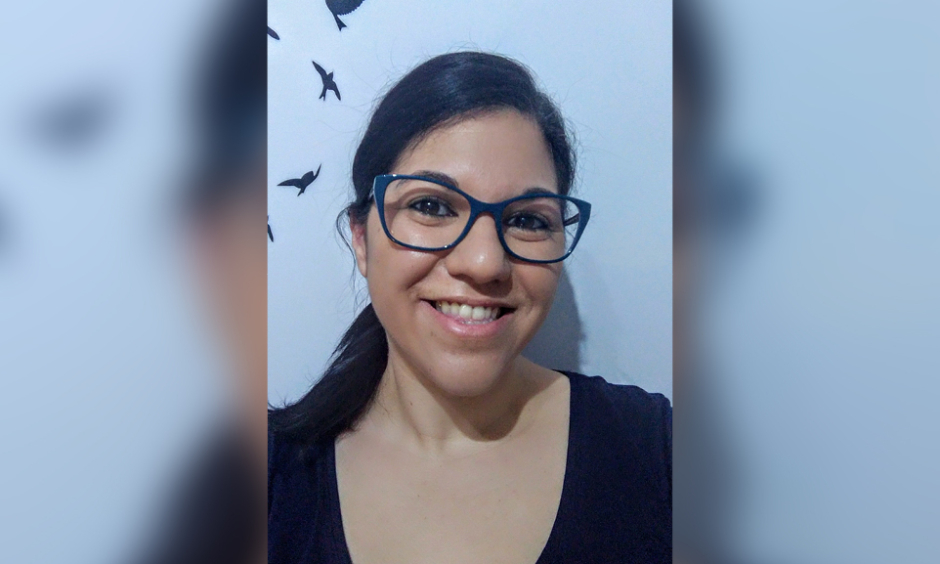Ms Beatriz Merino Antolín | Winner of EASD Rising Star Symposium and European Foundation for the Study of Diabetes (EFSD) Research Fellowship, University of Valladolid, Valladolid, Spain
![]()
What was your biggest inspiration behind pursuing a career in diabetes research?
I have always loved research careers in biomedicine, in any field in which they can contribute, but, without a doubt, being married to a someone with Type 1 diabetes mellitus is my main driver to continue working to unravel the enigmas of this disease.
What first sparked your interest to carry out research in insulin resistance?
Insulin resistance is the most important factor in the development and establishment of Type 2 diabetes mellitus. Really, I came to this field by chance with thanks to the predoctoral fellowship associated with a research project by Dr Iván Quesada Moll, Miguel Hernández University of Elche, Elche, Spain, which focussed on the study of the adaptation of pancreatic α cells in the context of obesity and prediabetes. Iván Quesada group is part from the diabetes study group led by Prof Angel Nadal Navajas, Miguel Hernández University of Elche, in a benchmark study in endocrine disruption and diabetes research. Unravelling the mechanisms of insulin resistance and aetiology is key in the fight against this disease and poses a fascinating challenge in this field; my interest began in my postdoctoral stage thanks to everything I learned from my actual mentors: Irene Cózar-Castellano, University of Valladolid, Valladolid, Spain, and Germán Perdomo, CSIC, Valladolid, Spain.
What advice would you give to young people choosing to start a career as an academic researcher in diabetes?
My advice to any researcher in the field of medicine is to always think that you are doing work that the whole of society will benefit from. Sometimes this job is thankless and the research career is tough, but perseverance leads to achievements that are worth the effort. Knowing that your findings can help further research and improve people’s lives is the best of the rewards.
Which sessions did you enjoy most at EASD Virtual Meeting 2020? Why?
The session I have enjoyed the most is the 14th Albert Renold lecture, given by the great researcher Prof Guy Rutter from Imperial Collage of London, London, UK. This talk was a fascinating review of the metabolic and functional specialisation of β cells and their relationship to the development of diabetes. It shed light on the genetic variants presented in patients with diabetes that would lead to the development of personalised medicine.
What difference do you think the virtual format of the congress made to the annual meeting?
The virtual format of the current edition has been a success in terms of organisation and dynamism to be able to attend different sessions. The organisers are to be congratulated for the great effort and resources used in this virtual edition. On the other hand, the personal presence and networking that this type of event allows you in its annual form is always missed. Let’s hope that next year the presence form can be resumed; in the meantime, we have very much enjoyed the best way that the coronavirus disease (COVID-19) pandemic allowed.
Congratulations on winning the EASD Rising Star Symposium & EFSD Research Fellowship! Could you explain a bit about the research carried out on insulin-degrading enzyme and the endocrine pancreas that led to you winning this award?
Thank you very much for the acknowledgment. It is a project that aims to elucidate the role of the protein insulin-degrading enzyme in the development of the endocrine pancreas and the pathology of diabetes. Our group has discovered that this protein plays a fundamental role in the physiology of the insulin and glucagon secreting pancreatic cells, which are the main pancreatic hormones that regulate glucose homeostasis. When there are functional problems or dysregulations in these cells, diabetic conditions develop. The novelty of this project is that we have data that suggest that the absence of insulin-degrading enzyme could be related to problems in the development of the endocrine pancreas and in the identity of the cells, causing an immature phenotype in these cell types and therefore dysfunctional hormonal secretion. The endocrine pancreas made up of immature cells could lead to the accelerated development of diabetes.
What did you enjoy most working as part of a team on this research project?
I always enjoy teamwork, each new finding shared with the members of the laboratory encourages further research. Seeing the predoctoral students grow and grow as a postdoctoral with them is one of the best things I have experienced in this project. This project has also allowed me to mature as a researcher thanks to my mentors in this postdoctoral stage, Irene Cózar-Castellano and Germán Perdomo.
What effect did COVID-19 have on this important project and the work you were able to carry out? What were some of the unique challenges?
COVID-19 affected us with the closure of the laboratory during confinement, this meant that we have had to delay some important experiments including the start of the Rising Star project funded by the EFSD. Fortunately, the EFSD has had no problem giving us the flexibility we needed in this special situation. We hope to begin developing our mouse model for studying endocrine pancreas development in the coming months.
What aspirations do you have for your future career? Where will your focusses lie in the coming years?
My aspirations are to be able to consolidate a career as an independent researcher in the field of diabetes and to promote the training of new researchers who can help to unravel the enigmas of this other major pandemic. In the years to come I hope to be able to prove myself and continue to help expand the state of the art in the physiology and pathophysiology of the endocrine pancreas.








